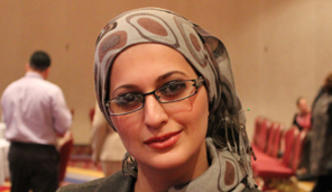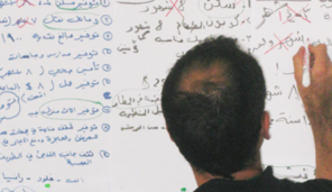RSC Middle East and North Africa
Cultural Orientation Program Profile
Resettlement Support Center (RSC) Middle East and North Africa has been operated by the International Organization for Migration since late 2001.
Training Sites: The Resettlement Support Center and CO program is based in Amman, Jordan. Currently, additional training sites are Baghdad, Iraq; Cairo, Egypt; Sallum, Egypt; and Zarzis, Tunisia.
Refugees: The majority of students in the CO program are Iraqis in Baghdad or living in exile in Amman. In Cairo, the primary caseload is Sudanese, but Somalis, Eritreans, Ethiopians, and Iraqis are also present in much smaller numbers.
The program serves learners ages 14 and older. A childcare facility takes care of infants and young children while CO is in session in Amman and Baghdad.
The educational levels of learners vary considerably. Many of the Iraqis participating in CO are well-educated professionals with English language skills, yet others do not have this educational or linguistic background. In addition, most of the program’s Sudanese and Somali learner population have had no formal education.
Staff: Amman CO staff consists of three trainers, one admin support staff, one childcare provider and the Regional CO Coordinator. There are two CO trainers in Baghdad, and one childcare provider and one CO trainer in Cairo as well.
Course Particulars: A normal course lasts 20 hours and ordinarily takes place over 4 days in Amman and Cairo; in Baghdad it is a 2-day course for security and logistical reasons. Each day there is a half-hour break, during which participants are served a meal and a morning 15 minute coffee break. Ideal class size varies between 20 and 25 students.
Course content is based on the Welcome to the United States guidebook. Topics are adapted to the interests and needs of each refugee group and are also adjusted based on feedback from PRM and the resettlement agencies in the U.S.
All sessions are carried out in Arabic, with interpreters used for non-Arabic-speaking learners. The training methodology used is experiential and highly interactive: participants are presented with situations and are challenged to find solutions themselves.







